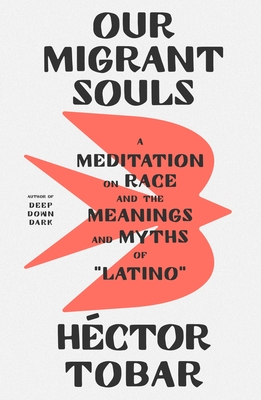Acknowledgments
byAcknowledgments for this book are offered with deep appreciation to the individuals and institutions whose support has been instrumental in its creation. A fellowship from the Radcliffe Institute at Harvard University was the foundation of this project, providing not only financial resources but also intellectual stimulation. During my time at Radcliffe, I was fortunate to receive invaluable help from two talented undergraduates, Tania Domínguez-Rangel and Jesús Estrada-Martínez, whose fresh perspectives and thoughtful feedback guided the development of this book. I owe a special debt of gratitude to my partner, Virginia Espino, whose insight and mentorship were essential in shaping my understanding of the critical texts and scholars that inform this work. Her introduction to key scholars like Nell Irvin Painter, Mae Ngai, Kelly Lytle Hernández, Natalia Molina, and Cheryl I. Harris gave me the intellectual tools necessary to approach the subject matter with depth and sensitivity.
I also want to express my thanks to Kit Rachlis, who facilitated my travels to Guatemala through his support at California Sunday Magazine. These travels provided me with invaluable firsthand experiences that helped enrich the narrative within this book. Rachel Poser, a former editor at Harper’s Magazine, also played a pivotal role by publishing my account of my journey across the United States. This publication allowed me to expand on my exploration of cultural and societal issues, making the themes of this book more accessible to a wider audience. Dorothy Wickenden and David Remnick at The New Yorker were also instrumental, offering a platform for my “Personal History” piece that reflected on my experiences in East Hollywood, navigating the complexities of civil rights activism and white supremacy. These publishing opportunities have allowed me to explore ideas that would later take shape in this book, contributing to the broader dialogue on race, identity, and social justice. The visibility provided by these outlets played a crucial role in shaping the direction of the work.
Many of the foundational concepts and ideas within this book also grew out of my contributions to The New York Times, and I am incredibly grateful to Sewell Chan for offering me the opportunity to publish op-eds there. His trust in my writing allowed me to explore and refine the ideas that later became central to this book. A heartfelt thank you is due to Yxta Maya Murray, who took the time to review an early draft of my manuscript. Her thoughtful and generous feedback pushed me to refine my approach and gave me the confidence to continue developing the work. I am also deeply thankful to Alex Espinoza and Marissa K. López, whose encouragement sparked the initial idea for this project and kept me focused when I was struggling with its direction. Their unwavering support was pivotal in moving the project from an idea to a completed manuscript.
Throughout my career as a journalist, I have been fortunate to meet and engage with individuals who have trusted me with their stories. These stories, often deeply personal and vulnerable, have enriched this book and made it possible. Without the generosity of those who shared their experiences, this work would not have come to fruition. I offer my deepest thanks to all those who opened their lives to me, allowing me to gain a deeper understanding of the complex issues discussed here. I also wish to acknowledge the academic and intellectual community at the University of California, Irvine. My colleagues and students there have been a constant source of inspiration, offering valuable insights into the Latino experience and challenging me to think more critically about our shared future. The conversations and discussions that took place in the classroom and beyond have shaped this book’s ideas, and I am grateful for their ongoing support and encouragement. The collaborative nature of our academic community has profoundly impacted the work and direction of this book, and I am thankful for the many ways in which my colleagues and students have enriched my understanding of the world and the themes within these pages. Without their guidance, this project would not have reached its full potential.

